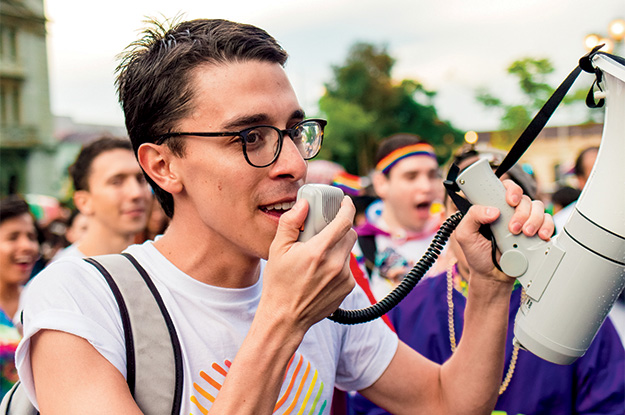This article was adapted from AQ’s print issue on how to make Latin American cities better. The interview has been edited for length and updated.
How has the fight against corruption affected the struggle for LGBTIQ equality in Guatemala?
In a way we’re the child of the anti-corruption movement. What convinced me that we needed to start an LGBTIQ organization were my experiences in anti-corruption groups like #JusticiaYa and my close connections with people working to transform Guatemala’s political system. The anti-corruption movement in 2015 opened a space that did not exist before for new actors to start participating in the public sphere.
What is Guatemala’s government doing to protect LGBTIQ people?
The Public Ministry has revamped its data collection tools to gather reports and complaints lodged by victims of hate crimes. However, this system still underreports hate crimes since people don’t always come forward because they lack trust in institutions. Meanwhile, bills aimed at recognizing gender identity and fighting discrimination and hate crimes have withered in Congress due to lack of support. The Presidential Commission on Human Rights was drafting a policy proposal to guarantee access to housing, health, safety and employment for LGBTIQ people, but the president has since given explicit instructions to ministries to not advance on LGBTQI rights or related programs ever since his initial conflict with CICIG, the UN-backed anticorruption body that he expelled from the country.
What’s the future outlook for LGBTIQ Guatemalans?
Recently we’ve made advances shifting media coverage of LGBTIQ people. But we fear the issue will draw too much negative attention during the 2019 election campaign. Things have been heating up, conservative movements have dominated the discussion, and public opinion doesn’t favor us. It’s easy to be pessimistic. Despite this, we’re hopeful that, as Panama and Costa Rica have advanced, we’ll soon join them on the road to achieve full recognition of everyone’s rights, regardless of sexual orientation or gender identity.
—
Enríquez is a journalist based in Guatemala and a former editorial intern for AQ





